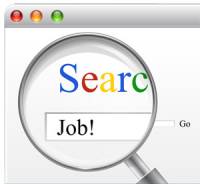General guidelines for interviewing well
Now that you have finally secured a job interview with one or several companies, it is a good idea to prepare yourself for the interview(s) appropriately. First, you will need to gather enough information about the company from the company’s website and other sources. It has been said that your interest in any company can be gauged based on how much information you have taken upon yourself to study about the company. Second, as much you might have interviewed in the past, it is a good idea to tailor your delivery to the particular interview at hand. This article will guide you through the interviewing process and will offer suggestions on how to tackle varying topics.
Before the Interview
If you are interviewing for an engineering job it is very likely that you will be interviewed by a number of people, one of which will be the hiring manager. Realize that while the final decision will be made by the hiring manager, each an every one of the individuals present at the interview will have some input in the final selection process. If it is at all possible, make an attempt to find out who will be at the interview and their respective departments. This will allow you to anticipate the kinds of questions they might ask and will also help you prepare for the type of questions you should ask.
Every job is different, so you should prepare for the interview based on the expected outcome. The list below gives some suggestions on the items you should work on for the interview.
- Thoroughly research the company’s website and any other information you can find on the company
- Come up with several well thought out questions for the interviewers.
- Find out about the company’s history, major projects, lawsuits etc.
- Study your resume and be ready to intelligently answer any questions derived from it
- Make enough copies of your resume
- Make sure you have several professionally-done business cards
Prepare for questions that you might be asked
It is almost impossible to know exactly what questions are going to be asked at the interview but you can expect that there are certain areas that are likely to be explored.
- So brief yourself on the skills required to do the job that you are interviewing for in relation to the experience and skills you have to do that job.
- Think about questions that may arise from the answers you have given on your application.
- Consider any questions that may arise about your resume as previously mentioned.
Remember the better prepared you are, the more professionally and accurately you will be able to answer each question and this will put both you and the interviewer at ease.
Relevant topics
How will the interview be structured?
Most interviews follow a fairly similar simple format. Usually you will be invited into the interview room, offered a drink of tea, coffee or water and then sometimes a few minutes of casual chat such as “how was your journey?” – you get the idea! Next your interviewer will ask some general questions, such as “Tell me about yourself” or “Do you work well in teams?” They may then ask you questions about your resume such as “I see you managed, the I-95 overpass project, tell us about that”.
While the above interviewing format is typical of many engineering companies, not all follow that format. It is a good idea to research on on the internet to check if someone has shared their interviewing experience online. You do not want to be in a bad interview situation like this guy.
Convincing your interviewers and offering them reassurance
It is very important at the interview stage that the interviewer feels happy about all of the areas they have covered. There are few ways in which you can figure out how the interview is going and therefore adjust how you are selling yourself if necessary. Here are some example and tips,
- If they keep going back to specific questions, it is possible that they don’t feel that you have addressed the topic completely – this is often a good sign as it means they are taking your candidacy seriously and they may just want reassurance in one or two areas. If you can put their mind at rest it will make you a far stronger contender.
- If you haven’t been asked any questions about a particular topic, you have either done a fantastic job at clarifying all of their concerns and queries or you are unlikely to have gotten the job. So try and be as open as you can be and lead the interview on to your strong points.
- If you are well prepared before the interview and you think there is an area of your career history that might make your interviewer a little wary, you should have a sensible answer ready and avoid feeling left speechless when the interviewer says – “Why is there an 18 month gap in your employment history”.
Before the end of the interview
Make sure you collect all the business cards from all your interviewers.
Always send a Thank-You note
You should always send a thank-you note by the very next day to everyone present at the interview. Ideally, you should send an email immediately, followed by a printed mailed copy. The message on the cards should be simple and to the point. For example, “I wanted to thank you for talking with me yesterday. It was very helpful to me. I much appreciated you taking time out of your busy schedule to dot this. Best wishes to you”.
Wait and follow up
Depending on your perceived outcome of the interview, you should have an idea if you will be getting the job or not. Most companies will give a courtesy call regardless of the outcome. However, if you do not hear from them after the agreed time-frame has passed, call the lead interviewer and find out if you got the job. If negative, do not worry. Look at it this way, its their loss for not realizing your potential and the value you would have added to the company. Relax and keep looking for other opportunities.
Best job search websites for engineers | Back – Next | Assessing Job Offers and Negotiating Better Terms


